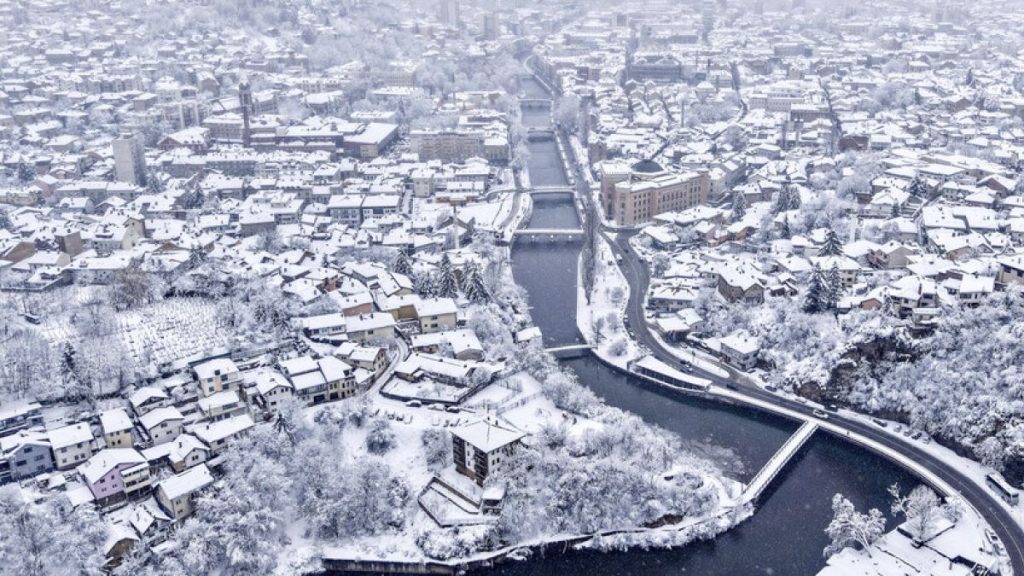The Balkans region has been severely impacted by heavy snowstorms, resulting in widespread power outages, transportation disruptions, and emergency declarations in several areas. Tens of thousands of homes across Bosnia and Herzegovina have lost electricity, heating, and water access due to damaged power lines. The snow and strong winds have blocked roads and highways, isolating towns and villages, and causing significant traffic disruptions. Authorities in Bosnia, Serbia, and Croatia have implemented travel restrictions, banning heavy vehicles and limiting traffic on affected roads. The widespread impact of the storms, affecting Bosnia, Croatia, Slovenia, Serbia, Kosovo, Montenegro, and North Macedonia, has prompted travel warnings and advisories for citizens to stay home and avoid unnecessary travel.
Bosnia has been particularly hard hit, with over 150,000 homes reportedly losing power. The northwestern and western regions of the country have experienced the most severe effects, with residents facing not only power outages but also a lack of clean drinking water. Schools in these regions have been closed for two consecutive days due to the hazardous conditions. The town of Drvar in northwestern Bosnia has been completely cut off, with snow accumulation rendering roads and railways impassable, prompting local authorities to declare a state of emergency. Rescue efforts are ongoing in other parts of the region, hampered by the severe weather.
The heavy snowfall has made travel treacherous and in some cases, impossible. In western Bosnia, dozens of vehicles were stranded in the snow for up to 10 hours before they could resume their journeys. The closure of major routes due to snow drifts has further complicated travel across the Balkans. Authorities are working to clear roads and restore power, but the ongoing severe weather conditions are posing significant challenges. The combination of power outages, road closures, and harsh weather is creating difficult conditions for residents throughout the affected areas.
The impact of the snowstorms extends beyond power outages and travel disruptions. The lack of electricity has also affected heating and water supplies, leaving many residents without essential services during the freezing temperatures. The prolonged power outages exacerbate the challenges faced by those stranded in their homes or on the roads. The heavy snow has also triggered avalanches in mountainous areas, increasing the risks for hikers and other outdoor enthusiasts. Rescue operations, already challenging due to the weather, are further complicated by the avalanche hazards.
In Slovenia, the severe weather has hampered rescue efforts for a Hungarian hiker injured in the Alps, north of Ljubljana. Strong winds forced the suspension of the search, though rescuers were able to reach the hiker’s female companion and transport her to a hospital. The incident highlights the dangers posed by the extreme weather conditions and the challenges faced by rescue teams. The ongoing storms are expected to continue impacting the region, with further snowfall and strong winds predicted.
The ongoing snowstorms in the Balkans underscore the vulnerability of the region to extreme weather events and the need for robust emergency preparedness and response systems. The widespread power outages and transportation disruptions highlight the interconnectedness of critical infrastructure and the cascading effects of severe weather on essential services. The challenges faced by affected communities emphasize the importance of community resilience and support systems in coping with such emergencies. The ongoing efforts of authorities to restore power, clear roads, and provide assistance to those in need are crucial in mitigating the impact of these severe snowstorms and ensuring the safety and well-being of residents across the affected regions.














